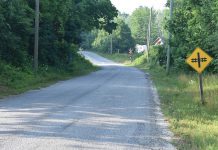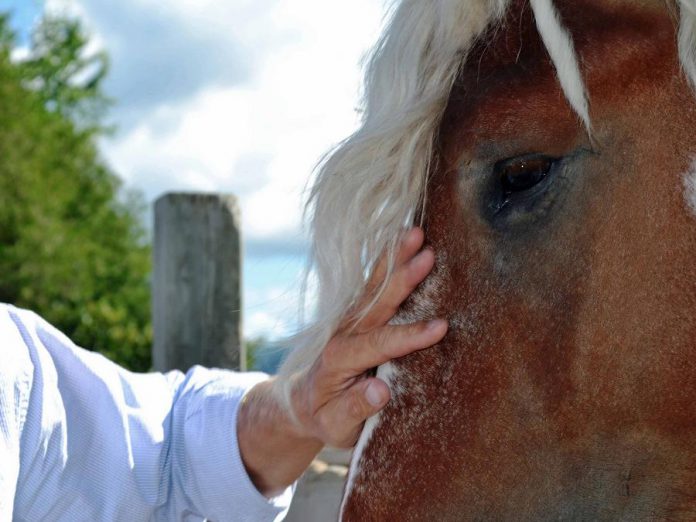
When around 200 people gathered at Trent University in May for the two-day national Inviting Resilience conference, their aim was to build the community’s capacity for resilience against the pervasive effects of violence and interpersonal trauma.
And an innovative way to help foster that resilience involves having young women who have experienced trauma work with horses. Research results to date from “Building Internal Resilience Through Horses” — a program led by Kawartha Sexual Assault Centre in partnership Dr. Kateryna Keefer of Trent University and The Mane Intent — were shared at the conference.
The Inviting Resilience conference, held on May 21st and 22nd, was organized by Kawartha Sexual Assault Centre, Trent University, and The Mane Intent Inc., with an advisory committee that included members from the First Peoples House of Learning, the Peterborough Police Service, and Peterborough Public Health.
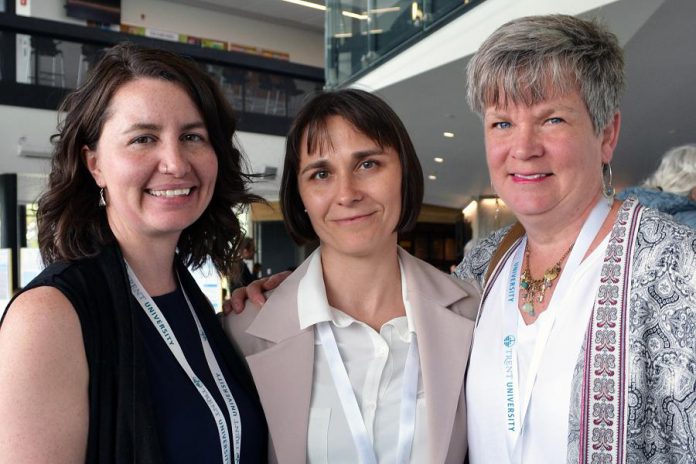
“We know that one in three women and one in six men will experience a form of physical or sexual violence in their lifetimes,” says Kawartha Sexual Assault Centre executive director Lisa Clarke. “These rates are even higher for indigenous peoples and individuals who identify with the LGBTQ+ spectrum. This conference is part of an ongoing multi-sectoral effort to invite resilience into our communities, families, minds and bodies, to help us heal from past trauma and prevent future violence.”
Speakers at the conference included Dr. Keefer (conference chair and senior lecturer in psychology at Trent University), Dr. Sandrina de Finney (associate professor in the School of Child and Youth Care at the University of Victoria), and Dr. Michael Ungar (professor of social work and Canada Research Chair in Child, Family and Community Resilience at Dalhousie University).
The conference also included presentations, experiential activities, and poster displays on topics including promoting resilience among victims of intimate partner violence and childhood abuse, transforming care in pregnancy and neonatal abstinence syndrome, the neuroscience of stress and resilience, suicide prevention among First Nations youth, and responding to disclosures of sexual violence on campus.
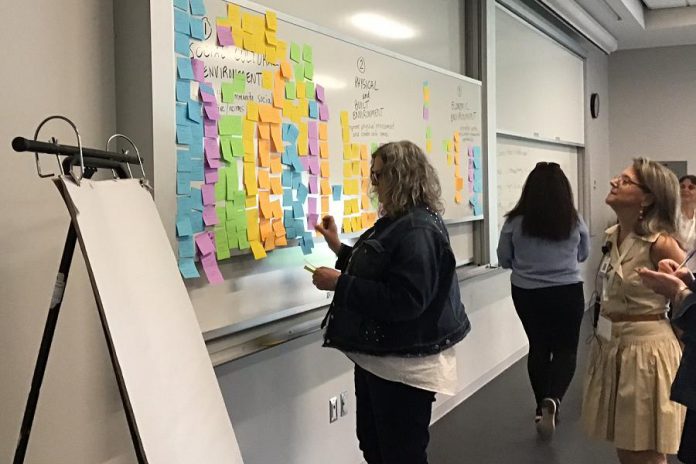
Other topics included addressing partner violence in trans communities, promoting resilience of parents and caregivers, reducing childhood anxiety, teaching emotional competencies, as well as innovative trauma-informed programs involving theatrics, art, hip hop dance, yoga, nature walks, Nato’ we ho win (the Art of Self-Healing), and the animal-human bond.
One of the many programs featured at the conference, Building Internal Resilience Through Horses is led by Kawartha Sexual Assault Centre, with Dr. Keefer heading a research team from the Emotion and Health Research Laboratory at Trent University, and The Mane Intent in Indian River delivering the program.
The Mane Intent’s owner and program director Jennifer Garland has been involved in facilitated equine experiential learning for many years, as the result of experiencing a major life change when a horse walked into her life and became the most inspiring coach she ever had. She had been a successful consultant but felt deeply connected to the practice of working with horses, because of the power and the strength they inspire in people. She left the corporate world and blazed a new trail as a certified equine learning facilitator.
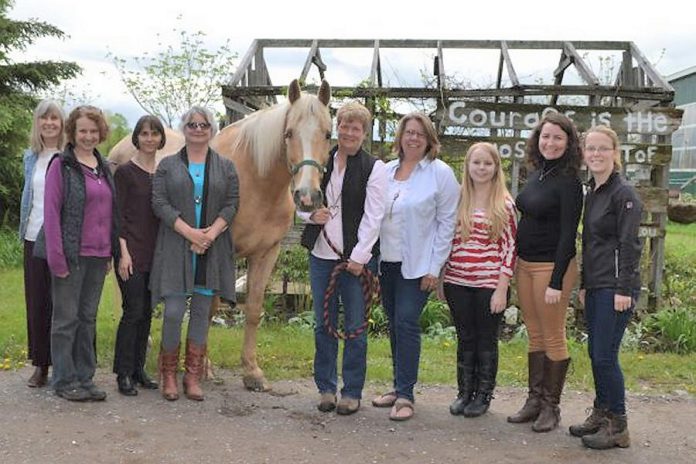
“I stepped out of my comfort zone, followed my passion and launched The Mane Intent in 2014,” Garland says. “I know horses can change who you are because they changed who I am.”
After taking this step, Garland attended a community conference where she started a conversation about her equine programming with a woman sitting next to her. This casual conversation eventually developed into a growing movement to understand trauma and to instill resilience.
“A quick chat turned into more,” Garland says. “Then we found a researcher (Dr. Keefer) and I’m glad we started that conversation.”
The collaborative chats grew into studies and then evolved into new learning on how to be trauma-informed. Garland is working on helping people understand this emerging methodology, which first involves acknowledging that trauma is pervasive, and then paying attention to safety, trust, choice, compassion, and collaboration — all while focusing on someone’s strengths.
VIDEO: Building Internal Resilience Through Horses
In 2017, the Kawartha Sexual Assault Centre, The Mane Intent, and Dr. Keefer’s research team landed some serious funding when the Public Health Agency of Canada provided a three-year $464,983 grant.
In 2018, the group launched a new website resource at invitingresilience.ca, where both survivors and professional service providers can review information on the resilience research, factors of resilience, and healing from trauma, along with local programs and resources for trauma survivors.
As well as supporting the Building Internal Resilience Through Horses program, the funding also allowed the group to organize the inaugural Inviting Resilience conference, where Garland had the opportunity to share the results she’s been seeing with participants in the program.
The program, which is designed to promote resilience and life skills in young women ages 13 to 18 living in the city and county of Peterborough and surrounding areas, has supported 11 groups of young women. Each of the participants has been impacted by childhood adversity and interpersonal trauma or exposed to intimate partner violence.
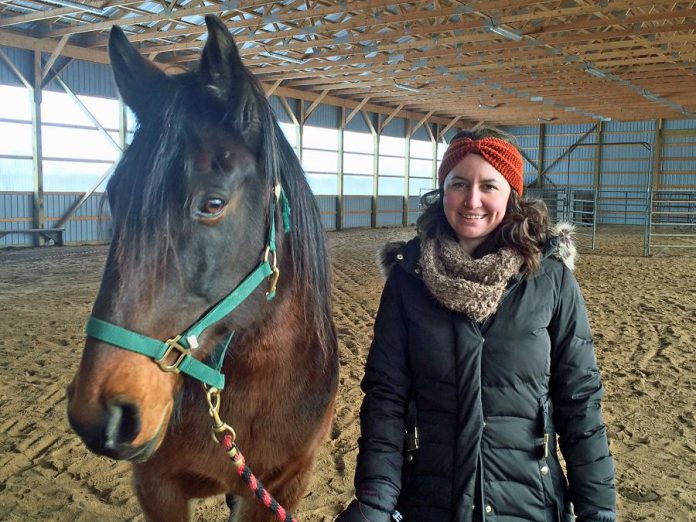
“The program is about gaining coping skills to be resilient in the face of trauma,” Garland says. And it’s having an impact — she and the team have received funding to continue for another two years.
“We’re going to 2021 now,” Garland says. “This is the power of possibility when you partner with others in the community.”
Garland is happy to report that program partnerships are growing, including through an agreement to support groups from the New Canadians Centre.
“Being trauma-informed helps people create the space they need to move through difficult parts of life and into a stronger future,” explains Garland. “It allows us to be much kinder and more inclined to hold space when they need that support.”
For more information about the Inviting Resilience project, visit invitingresilience.ca. For more information about the Building Internal Resilience Through Horses program, visit invitingresilience.ca/building-internal-resilience-through-horses/.


